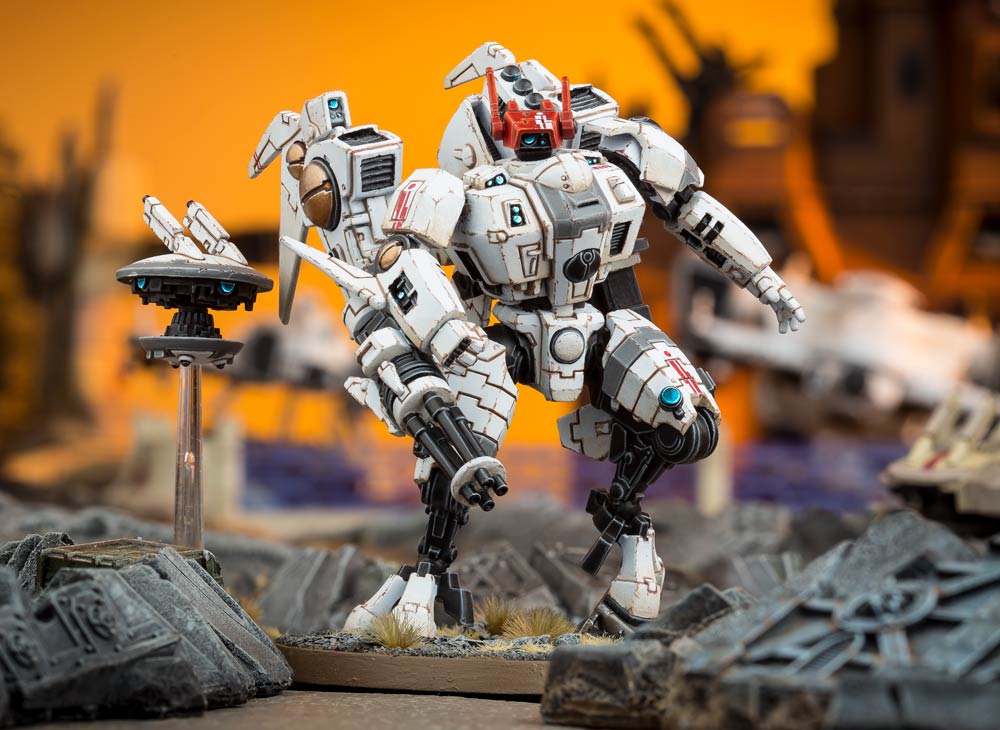40K Op-Ed: Time As A Weapon – The Chess Clock & You


Time is the real enemy – but how can you use it to your advantage when playing Warhammer 40,000? Guest Writer Steven C. Plagman has a few suggestions on how to work the clock before time runs out!
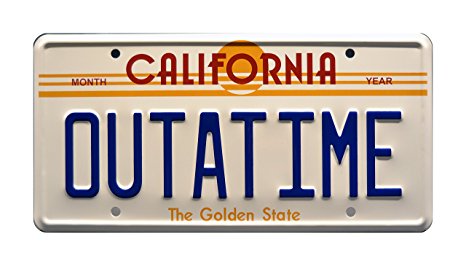 Time as a weapon
Time as a weapon
Or
“How I learned to stop worrying and love the chess clock”
By Steven C. Plagman
Like it or not, chess clocks are coming to a tournament near you. You all know why, so I won’t bother to beat that dead horse any further, but suffice it to say there is a very good reason for it. So, if you can’t stop the inevitable, you can either whine about the unfairness of it all, then take your toys and go home, or you can figure out a way to turn the clock into a weapon and beat your enemy about the head and shoulders with it until he submits.
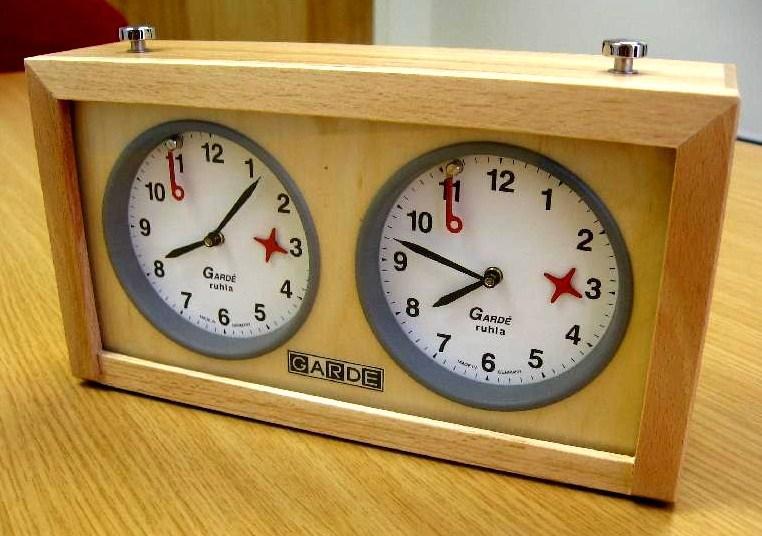 Your Honor, the murder weapon.
Your Honor, the murder weapon.
In a high-intensity match, the Great Enemy isn’t Slaanesh; it’s both time and pressure. If you can put enough pressure upon your opponent, he or she will almost inevitably make mistakes that you can capitalize upon given the proper circumstances. Used correctly, chess clocks are just another way to add pressure to the already tense tournament setting. So how do you use them to your advantage?
 Time & Pressure – also how cracks and diamonds are formed!
Time & Pressure – also how cracks and diamonds are formed!
The first thing you have to hammer into your skull is that you are no longer playing a 2.5 to 3-hour game each round. You are now playing a 75 to 90-minute game, and your opponent is doing the same. No matter who you are facing across the table, your true enemy is the clock. The two of you just happen to be playing your individual games on the same table, against the same merciless foe. Time is relentless, and above all else it’s patient. It knows that like any other limited resource, once you’re out of it, it’s gone. Unlike in past tournaments, you no longer get to dip into your opponent’s time to make up the slack, no matter how much he might have to spare, and without it, you’re utterly helpless.
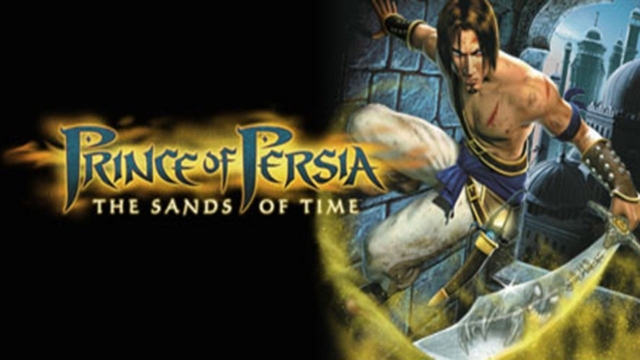 Sorry, you can’t steal time from your opponent with chess clocks.
Sorry, you can’t steal time from your opponent with chess clocks.
Choose Your Forces Wisely
Once you realize that you are playing a much shorter game than you are perhaps used to, the question then becomes how to best take advantage of the situation? The army you choose will dictate almost all of the rest of your answers. The simplest solution would be to take a small but powerful army, such as the Imperial Knights or the Adeptus Custodes, and hope that their relative toughness can outlast the enemy’s firepower. This approach has serious risks, of course. Fielding small numbers of giant war machines or elite troops means that your enemy can concentrate his firepower on a relatively few targets and potentially table you long before your time runs out. That being said, these armies are considered elite for a reason: it doesn’t take many of them to do a disproportionate amount of damage. They also tend to be extremely resilient. After all, if it were that easy to wipe them out, no one would ever play them. So, you have to ask yourself “do you manage the time by putting all of your eggs in one basket and trusting them not to break the first time they are hit?”
If you don’t like the answer to that question, then you have to start considering other options. Should you perhaps field a horde army? Everyone knows that a horde army is inherently slow. The physical act of placing 200+ miniatures on the battlefield takes precious time. That time becomes compounded with every round that goes by, as you are forced to move the same miniatures again and again and again. That doesn’t mean the army isn’t viable, especially if you’re confident about your placement, you know exactly how your army moves, and above all else you don’t dither. Even then, you’re putting yourself at a disadvantage from the very start. So, how do you maximize the amount of time you have without compromising your horde approach?
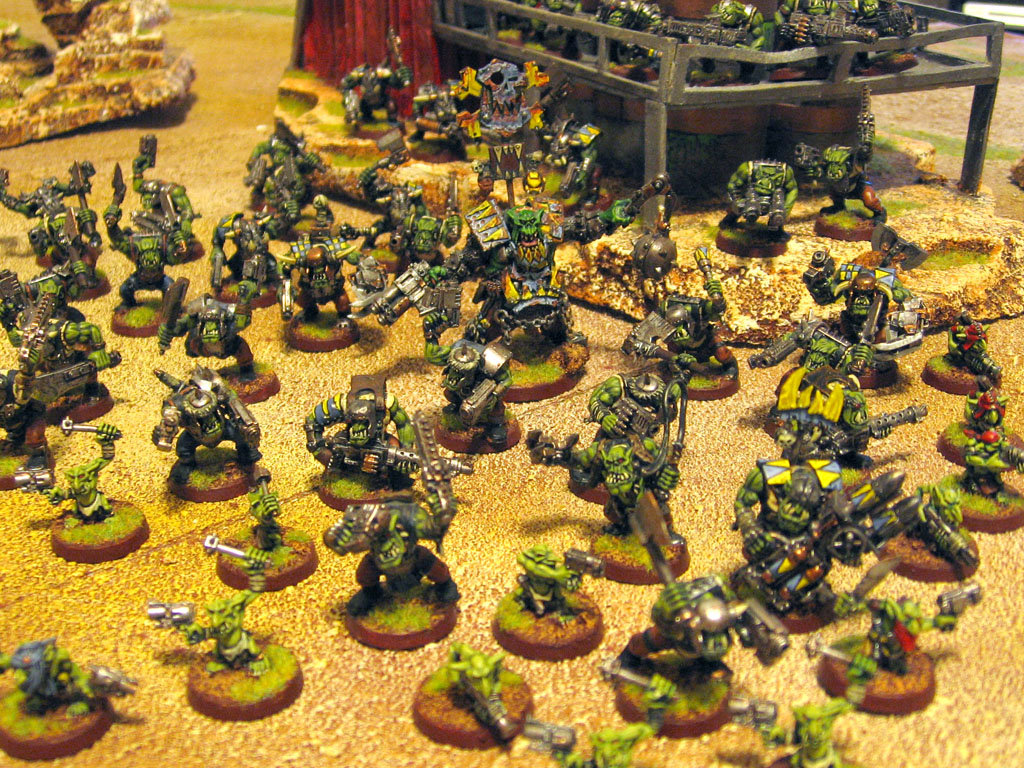 The Green Tide is GREAT…if you can finish a game.
The Green Tide is GREAT…if you can finish a game.
The two easiest answers are to utilize transports and deep striking. If you don’t have to put the miniatures on the table, then don’t. Placing one transport instead of 20 miniatures is a good way to budget your time without compromising your army’s size or integrity. Simply keep your passengers to the side and place them during your enemy’s turn as he’s blowing up your transports. As long as your opponent is still in the middle of his turn and you are quick about placing your models whenever a transport is removed, you can use his time instead of yours to place your models. Deep striking can also save you time as you will be placing your miniatures near his from the start, which means you won’t have to move them quite as often. Even with these solutions however, your army will still be slow, so budget your time accordingly.
 You said you wanted a Budget Transport.
You said you wanted a Budget Transport.
You could, of course, choose a middle road, with some mix of elite figures and horde elements, seasoned to taste, which can also buy you time while mitigating the chance of an early tabling. Tyranids are particularly good at this with their vast assortment of monstrous creatures and fast foot soldiers, as are heavily mechanized armies like the Adeptus Astartes and the Astra Militarum. There is no wrong answer here: any army can work, as long as you know what you are doing with it, and you look for ways to minimize your expenditure of time.
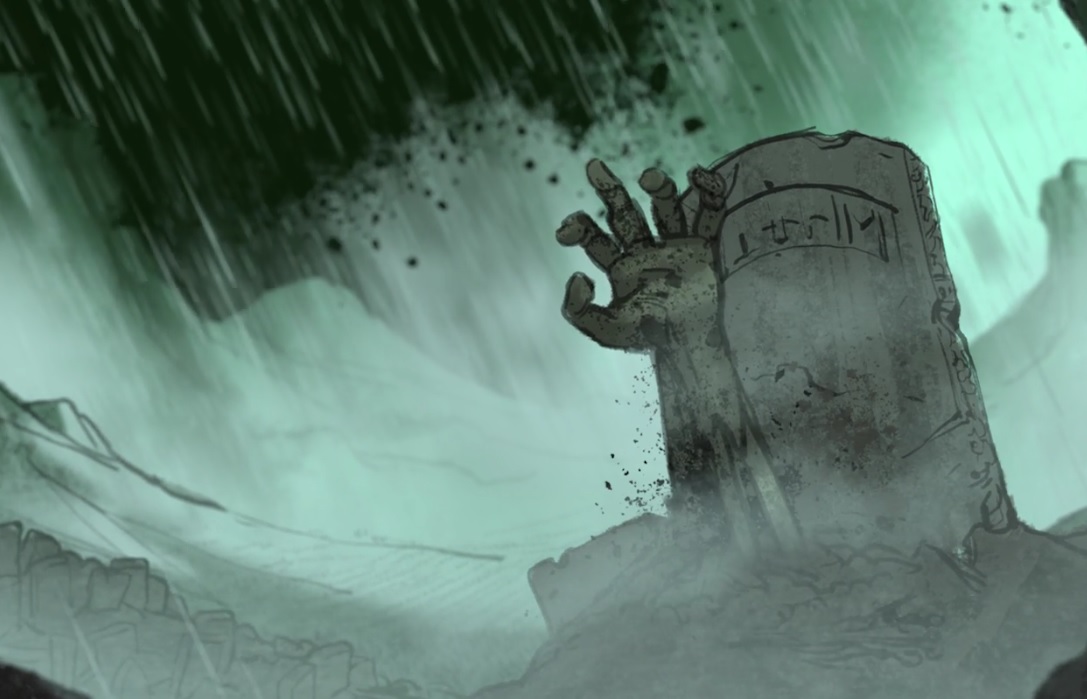 Time is the enemy. Never forget!
Time is the enemy. Never forget!
Time – One Resource You Can’t Get Enough Of
After you’ve selected your army, you’ll need to get used to the idea of budgeting your time and spending it only when necessary. Do you really need to take half an hour to set that unit up just so? Remember, not all armies are dependent upon perfect initial placement to survive. For an army that fears deep strikers and 1st turn chargers, spending that much time making things perfect might be crucial. But is doing so more important than making certain you have enough time to finish the game? Be certain that it really is necessary before you spend that time, as you can easily use up 1/3rd or more of your allotment on something that might not matter all that much.
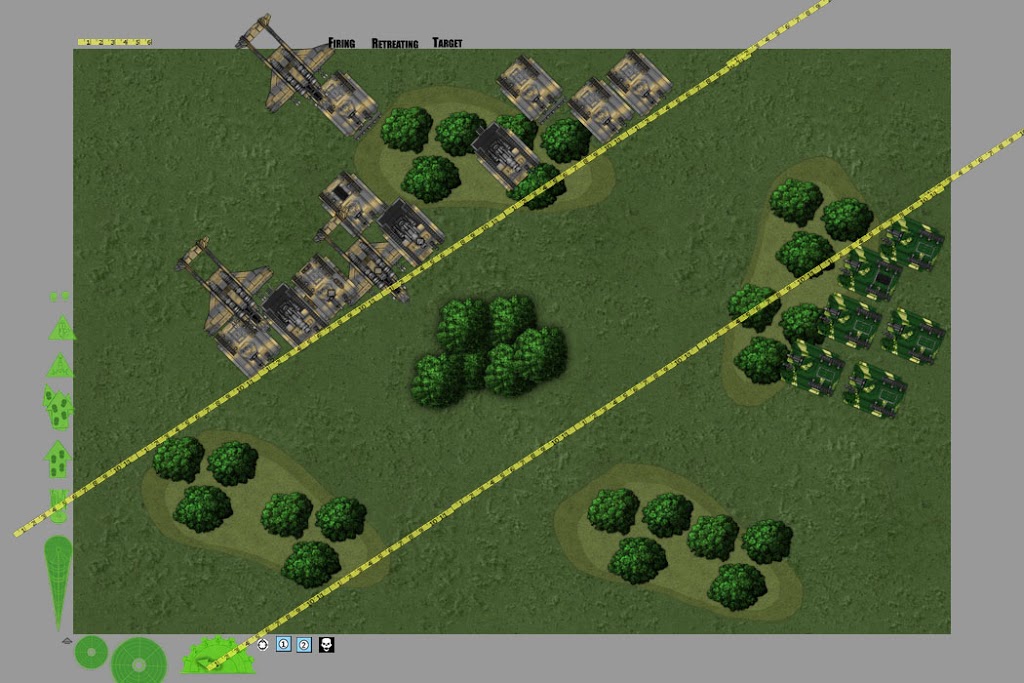 Deployment matters. Except when it really doesn’t.
Deployment matters. Except when it really doesn’t.
The next question you should ask yourself is, “is there some place I can save time by maximizing some aspects of my army while minimizing others?” That means zeroing in on your army’s strengths and ruthlessly weeding out their weaknesses. For some armies this is extremely simple: Necrons, Tau, and Dark Eldar have little to no psychic ability, so cutting the Psychic phase loose can save them a ton of time. It may seem like a severe disadvantage to give up an entire phase, but when time is an issue it can end up paying dividends. Tau in particular are extremely well-suited to saving time, as they can easily give up both the Psychic and Close Combat phases, then doubling up on the Shooting phase. In fact, the Tau may be the best army of them all for budgeting time, as they very nearly give up the movement phase as well. That doesn’t mean the Tau will be good for tournaments of course, but at least if you choose them you’ll have plenty of time left on the clock to bemoan your fate and get a beer as that first turn charge by the Dark Eldar wipes out your entire army. If that happens, look on the bright side, at least you will only have lost one commander. (Too soon?)
A serious bottleneck in some armies is the sheer plethora of Psychic powers to which they have access. Psykers are undeniably powerful, and some armies absolutely rely upon them to be successful. As both direct damage dealers and force multipliers, they are unparalleled. However, it takes time to use them properly, and in some cases their powers can be interrupted by the enemy. Using them is a gamble with no guaranteed return. If you are quick and decisive about using your powers, then you should have no problems. But with too many of them it can take a serious amount of time to Smite everything around you—often, time better spent by moving onto another turn.
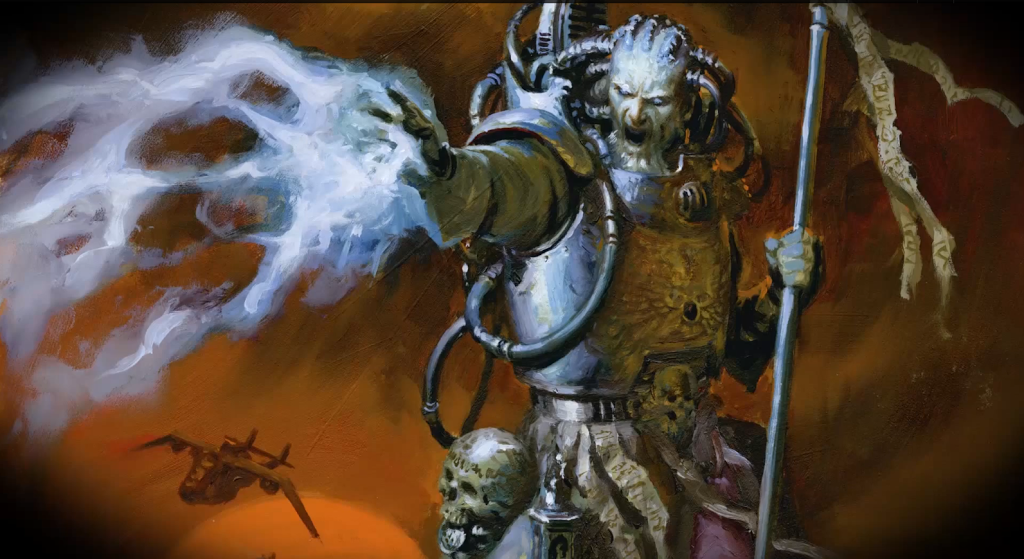 Should I Smite or should I Smite? Too many decisions!
Should I Smite or should I Smite? Too many decisions!
Quick Tips To Play Faster
There are other tips and tricks you can use to speed up your game. Laying out cards with all of the special rules your army uses (and the page numbers upon which you can find those rules) before the battle begins can save you a great deal of time, as flipping through rulebooks again and again is a complete waste of it. Bringing different colored dice for each unit and placing them on their unit cards can save you time as well, since counting out 81 dice for your Wyches’ close combat attacks will take a great deal of it. Even something as simple as attaching your measuring tape to your belt can save you time. Basically, anything you can do to keep your eyes on the board where they belong, instead of searching for a rule or a missing measuring tape, or counting out the appropriate amount of dice can make a difference. Also, always always always(!) remember to punch that clock when you are done with your action. If you aren’t used to using a chess clock, it can be easy to forget to hit that button. Just keep in mind that forgetting to do so wastes your precious time, and very few opponents are going to keep you from cutting your own throat. Not when a few extra minutes or seconds can mean the difference between victory and defeat.
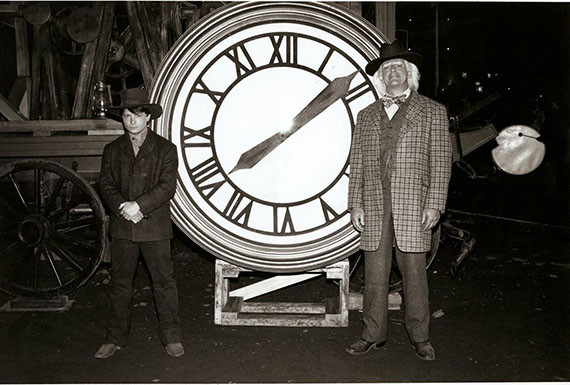 An early chess clock prototype.
An early chess clock prototype.
So, what do you gain by doing all of this? How can you use this to ‘turn the clock into a weapon and beat your enemy about the head and shoulders with it until he submits?’ If you manage your time wisely, and your opponent does not, you’ll put another level of pressure upon him above and beyond the stress a high-stakes game already does. This additional pressure will ultimately lead to him making mistakes both big and small, and in some cases can lead to outright victory. He may well be forced to rush through the endgame, giving you the ample opportunity to capitalize on those mistakes. Or, if you’re lucky enough that he runs out of time completely, it will leave him helpless to defend against anything you do.
Final Thoughts
The addition of chess clocks to a tournament setting doesn’t have to be a negative—it can be yet another weapon you bring to bear against your enemy. You’ll know he’s feeling the pressure when he starts glancing at the clock more and more often with a panicked expression on his face, as he watches the sand pour relentlessly out of his hourglass while yours looks as if it’s standing still.
Have you played in a tournament with chess clocks? How did you deal with the time crunch?


